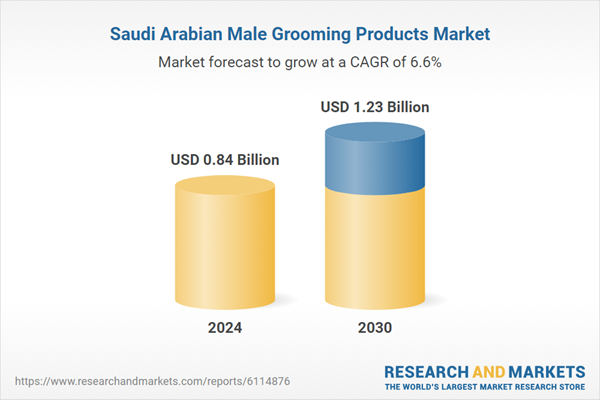Speak directly to the analyst to clarify any post sales queries you may have.
10% Free customizationThis report comes with 10% free customization, enabling you to add data that meets your specific business needs.
Key Market Drivers
Increasing Awareness of Personal Grooming and Hygiene
One of the primary drivers of the male grooming products market in Saudi Arabia is the rising awareness among men regarding personal grooming and hygiene. Traditionally, grooming was viewed as a largely female-oriented activity. However, in recent years, Saudi men have become more conscious of their appearance, hygiene, and overall wellness. This shift is particularly noticeable among millennials and Gen Z consumers, who associate grooming with self-confidence, professional success, and social appeal. Media exposure, social media influencers, and global beauty trends have contributed significantly to changing perceptions.Platforms like Instagram and TikTok have popularized skincare routines, beard grooming tips, and haircare advice tailored specifically for men. Additionally, local celebrities and lifestyle influencers increasingly endorse grooming products, encouraging younger male audiences to experiment with various personal care items. As a result, there's a growing demand for products such as facial cleansers, moisturizers, beard oils, hair styling gels, deodorants, and fragrances. The entry of international grooming brands and the launch of male-specific product lines by global and regional companies are capitalizing on this trend. Moreover, educational campaigns by brands and retailers are further normalizing male grooming practices, encouraging more men to incorporate them into their daily routines.
Key Market Challenges
Cultural Conservatism and Social Perceptions
Despite growing acceptance of male grooming, cultural conservatism still presents a challenge in Saudi Arabia. In some segments of society, especially among older generations or in more traditional regions, grooming beyond basic hygiene can still be perceived as unnecessary or excessive. These social perceptions can create hesitancy among men to openly purchase or use grooming products, especially those considered more cosmetic such as facial masks, anti-aging creams, or exfoliators.This stigma may limit market penetration and reduce consumer confidence, particularly for new or niche brands. While urban centers like Riyadh and Jeddah are more progressive, rural and conservative areas lag in acceptance. This uneven cultural landscape requires brands to carefully tailor their marketing strategies to avoid alienating consumers while promoting modern grooming as part of personal hygiene and self-respect. For many brands, striking this cultural balance remains a complex and ongoing challenge.
Key Market Trends
Rise of Natural and Organic Grooming Products
One of the most prominent trends in the Saudi male grooming market is the increasing demand for natural and organic products. As health and wellness awareness grows among consumers, more men are paying attention to the ingredients in their grooming products. They are actively seeking options free from harmful chemicals, parabens, sulfates, and artificial fragrances. This shift is driven by both health concerns and environmental consciousness, as well as skin sensitivity issues common in arid climates like Saudi Arabia’s. Brands that offer halal-certified, cruelty-free, and eco-friendly products are gaining significant traction, especially among millennials and Gen Z.Locally produced products using traditional Middle Eastern ingredients such as oud, argan oil, black seed oil, and rosewater are particularly appealing, as they combine cultural familiarity with modern health values. This trend is encouraging both global and local brands to reformulate their products and emphasize transparency in labeling and sourcing.
As a result, natural grooming is no longer niche but becoming mainstream in Saudi Arabia. A recent industry report reveals that 68% of consumers now prioritize clean-label skincare products, with 41% influenced by social media. The increasing focus on transparency and ingredient quality resonates strongly, particularly among younger consumers who seek to make informed decisions. This heightened awareness is playing a key role in driving market growth.
Key Market Players
- Unilever Saudi Arabia
- Procter & Gamble (P&G) Saudi Arabia
- Beiersdorf AG (NIVEA)
- L’Oréal Saudi Arabia
- Reckitt Benckiser Group
- GlaxoSmithKline (GSK) Saudi Arabia
- Henkel AG & Co. KGaA
- Dabur Saudi Arabia
- Al Nahdi Medical Company
- Gulf International Chemicals Company
Report Scope:
In this report, the Saudi Arabia Male Grooming Products Market has been segmented into the following categories, in addition to the industry trends which have also been detailed below:Saudi Arabia Male Grooming Products Market, By Type:
- Male Toiletries
- Electrical Products
- After Shave Lotions
- Others
Saudi Arabia Male Grooming Products Market, By Price Range:
- Mass Products
- Premium Products
Saudi Arabia Male Grooming Products Market, By Sales Channel:
- Supermarkets/Hypermarkets
- Pharmacy Stores
- Online
- Others
Saudi Arabia Male Grooming Products Market, By Region:
- Western
- Northern & Central
- Eastern
- Southern
Competitive Landscape
Company Profiles: Detailed analysis of the major companies present in the Saudi Arabia Male Grooming Products Market.Available Customizations:
With the given market data, the publisher offers customizations according to a company's specific needs. The following customization options are available for the report.Company Information
- Detailed analysis and profiling of additional market players (up to five).
This product will be delivered within 1-3 business days.
Table of Contents
Companies Mentioned
- Unilever Saudi Arabia
- Procter & Gamble (P&G) Saudi Arabia
- Beiersdorf AG (NIVEA)
- L’Oréal Saudi Arabia
- Reckitt Benckiser Group
- GlaxoSmithKline (GSK) Saudi Arabia
- Henkel AG & Co. KGaA
- Dabur Saudi Arabia
- Al Nahdi Medical Company
- Gulf International Chemicals Company
Table Information
| Report Attribute | Details |
|---|---|
| No. of Pages | 83 |
| Published | July 2025 |
| Forecast Period | 2024 - 2030 |
| Estimated Market Value ( USD | $ 0.84 Billion |
| Forecasted Market Value ( USD | $ 1.23 Billion |
| Compound Annual Growth Rate | 6.6% |
| Regions Covered | Saudi Arabia |
| No. of Companies Mentioned | 10 |









